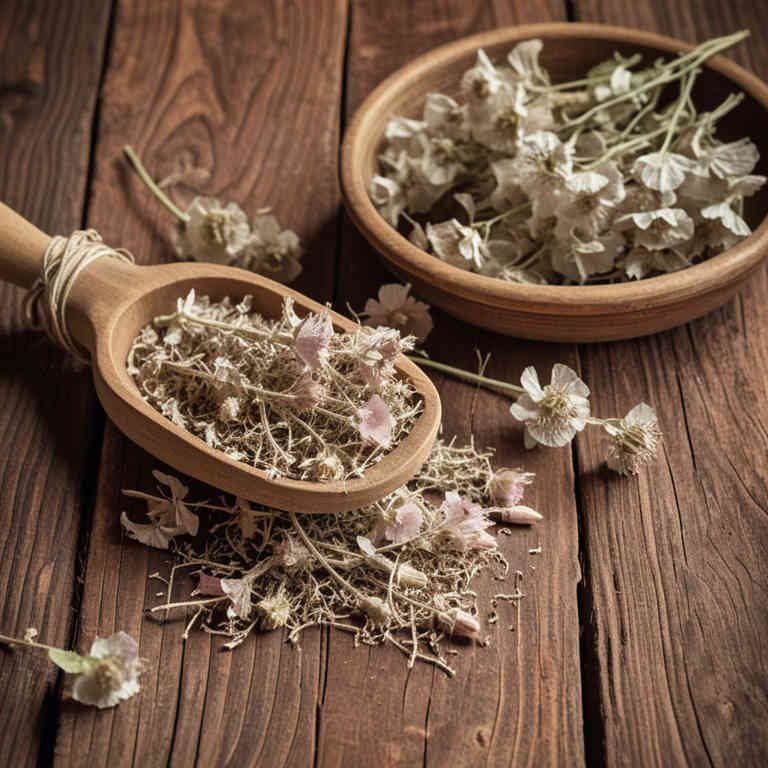Althaea officinalis linctuse for medicinal use

Althaea officinalis linctuse is a traditional herbal preparation made from the root or leaves of the marshmallow plant, known for its soothing properties.
It is commonly used in herbalism to alleviate coughs and respiratory irritations due to its demulcent effects, which help to coat and protect the throat. The preparation is often formulated as a syrup or tincture to enhance its medicinal benefits. It is particularly favored for its ability to reduce inflammation and provide relief in conditions like bronchitis or sore throat.
This remedy has been valued for centuries in both traditional and modern herbal practices.
Uses
Althaea officinalis linctuse has been used to soothe respiratory tract irritation and alleviate coughing for centuries.
Historically, it was valued in ancient Egypt, Greece, and Rome for its demulcent properties, which helped to coat and protect inflamed mucous membranes. Traditionally, it was prepared as a syrup or decoction and used to treat conditions like bronchitis, sore throat, and asthma. In modern times, it remains a popular natural remedy, often found in over-the-counter cough syrups and herbal formulations.
Its continued use highlights its effectiveness and safety in addressing respiratory discomfort.
Benefits
Althaea officinalis linctuse has health benefits such as soothing sore throats, reducing coughing, and easing respiratory discomfort.
It is commonly used to treat symptoms of colds, flu, and bronchitis due to its mucilage content, which forms a protective layer over irritated mucous membranes. The preparation also has mild anti-inflammatory and demulcent properties that help alleviate inflammation in the throat and airways. It is often recommended for individuals experiencing dry or productive coughs.
Additionally, it may support overall respiratory health by promoting easier breathing and reducing irritation.
Constituents
Althaea officinalis linctuse active constituents include mucilage, flavonoids, tannins, and alkaloids.
Mucilage is the primary component responsible for its demulcent properties, which soothe irritated mucous membranes in the throat. Flavonoids contribute to its anti-inflammatory and antioxidant effects. Tannins help reduce inflammation and may aid in healing.
Alkaloids may provide additional antimicrobial and expectorant benefits, supporting respiratory health.
Preparation
To make Althaea officinalis linctuse, start by harvesting the roots of the plant, which are best collected in the autumn.
Clean the roots thoroughly and slice them into thin pieces to increase surface area for extraction. Next, place the sliced roots in a pot and add water, bringing it to a gentle simmer to create a decoction. Allow the mixture to simmer for about 30 minutes, then strain the liquid through a fine mesh or cheesecloth to remove any solids.
Finally, add a small amount of honey or sugar to the decoction to enhance flavor and preserve the preparation.
Side Effects
Althaea officinalis linctuse may lead to gastrointestinal discomfort such as nausea, vomiting, or diarrhea in some individuals.
It can also cause allergic reactions in people sensitive to plants in the Malvaceae family. Long-term use may result in dependency due to its mild sedative effects. Overuse can lead to dehydration and electrolyte imbalance.
It is important to consult a healthcare professional before using this preparation, especially for those with pre-existing medical conditions.